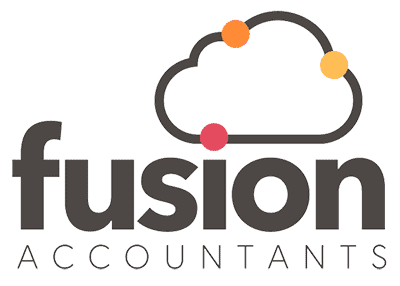Accounting tips for eCommerce business owners
Reading Time:
Starting an e-commerce business is one of the best ideas you can think about when looking for a profitable investment. With your new online shop, your products and services are now available all year round. There is so much that goes into developing a successful e-commerce business and looking after the accounting and financials should be near the top of your to-do list.
Managing your accounts is one of the essential things you need to learn, and as your eCommerce business begins to flourish, you will need to focus more and more time on your finances. Sales, returns, inventory, invoices, and cash flow — all your incoming and outgoing payments will need to be grouped correctly, analysed, and then reported to HMRC.
Having a sound accounting system in place means you will stay on top and manage all your financial data and be better prepared when tax time comes around.
You may wish to hire a bookkeeper to do some of the work for you. However, learning the basics will make it easier for you to track sales activity and costs and maintain records to review your financial activity to give you better insights into the numbers behind your business.
The accounting needs of an eCommerce business are different from a traditional company. This article offers a more in-depth look into eCommerce accounting services offering tips and advice to help your business achieve successful longevity.
Before diving into starting your eCommerce business, there are several basics you will need to cover off first. Here are five tips to help e-commerce businesses grow their finances and scale up their operations.
What is eCommerce business accounting?

Whether you are selling products through Shopify, WooCommerce, Amazon or eBay, you will need sound systems and processes to manage your finances that will help document every transaction and provide the information for review when needed.
In addition, as an entrepreneur, you should also be thinking about complimentary accounting software (EG: Xero, Quickbooks, Freeagent etc.) that will help you understand and analyse accurate financial data related to all your business transactions.
1.) Accounting software solutions
Xero can pull transaction data straight from your point-of-sale (EPOS) system, invoicing software, and banking statements. It can speed up bank reconciliation and credit card information, automatically paying bills. View your cash flow and chase outstanding invoices from suppliers. Monitor your sales and spending and pull data from specific areas of your business.
QuickBooks gives the option to track your business’s profitability, any unpaid invoices and lets you monitor your income and expenditure. Over time you can build projections so you can implement future improvements. Profitability measures let you easily and quickly track transactions and determine how much your business earns on inventory.
Freeagent will help you manage projects, invoices, and expenses. Use its dashboard to see your business performance and check your cash flow. It will create automatic MTD compatible VAT returns as well as auto-populate your self-assessment to file directly with HMRC.
There are numerous eCommerce accounting software platforms available you can purchase. It would be best if you took advantage of the software’s free trials to experiment to see which platform is the right fit for your business. Most of the market leaders (as well as most banking apps) will enable you to easily integrate with your platform so that all your transactions flow seamlessly and securely.
You will want to do much of the same with your marketplace systems and apps (such as Shopify, eBay and One SaaS) to automate your business across accounting, eCommerce, billing & invoicing.
You will now see a wealth of financial information that eCommerce entrepreneurs will be invaluable for making future business decisions.
Accounting falls into three categories:
- Bookkeeping.
- Reporting.
- Tax return submission.
Running an online business becomes easier when you have working systems. Establishing a solid eCommerce accounting foundation and hiring experienced eCommerce accountants will help you do it stress-free.

2.) Track your cash flow
Understanding a business’s financial situation is essential. Besides keeping an expense and revenue record, cash flow forecasting will help identify your sales trends and margins, lines of credit available to you, enabling you to set targets and move the business forward faster.
Without documenting how your business is performing monitoring the money coming in and going out, you will struggle to determine your actual income, leading to shortfalls in cash flow and even not being able to pay your staff. In addition, you will not find ways to improve your business if you do not have a clear picture of how it is fairing financially.
Hiring an experienced accountant will help in this process.
3.) Calculate all other expenses
If your online store has been established for a year or more, you perfectly understand the importance of staying on top of managing your business expenses and revenues.
Several expenses are tax allowable, which means you can offset these to reduce your business’s taxable income, such as office supplies and packaging, shipping and delivery costs and website infrastructure and software. In addition, if you use an accountant or solicitor to help manage your eCommerce business’s financial or legal aspects, these are also tax-deductible.
We would suggest holding on to records of your receipts for up to six years as HMRC can audit you up to this time. You do not need to hold onto physical receipts if you do not want to, and apps like Expensify allow you to store receipts electronically, which HMRC is perfectly happy for you to do.
4.) Separate your Bank accounts
It is always best to have at least two bank accounts to keep your business and personal finances separate. Having an account dedicated to running your business will make it much easier for you to keep control of its finances.
Golden rule: make sure that you do not use money from your business account for your personal needs.
Use funds from your personal account to cover any “reasonable” business expenses, as you can claim them back as ‘out of pocket’ expenses.
Do shop around when looking to open a business bank account. Consider your needs to find the right business bank account to fit your needs. You should weigh up several factors before deciding, including standing or transaction charges, any introductory offers that may be short-term and internet banking access. Doing your homework will mean you will avoid high account running costs.
5.) Inventory management

Creating a well-organised eCommerce inventory management system is an essential aspect of running a successful business. The process can be detailed but having complete visibility of every aspect will help you be better prepared for the unexpected.
Your inventory practices should outline the amount of inventory you can have at any one time. Making wrong decisions regarding how you manage inventory can be incredibly costly —
the right choices could be very profitable.
Ecommerce inventory management can help you approach sourcing, storing, tracking, and shipping for your eCommerce business’s inventory, a more managed process. Robust inventory management strategies are ideal for eCommerce companies looking to increase their efficiency and reduce operational costs.
Conclusion
Accounting being a back-office operation, can often get overlooked. However, as mentioned in this article, it pays a critical part of any profitable eCommerce business. These simple accounting tips will help you develop a good foundation for your eCommerce business and help you avoid running into any problems in the short or long term.
Taxes come around every year, and the earlier you plan, the less stressful the process will be.
If you wait until the last minute, it could be a mad scramble to produce the supporting documents required by your accountant so they can do their job correctly – producing an accurate tax return and ensuring you stay compliant with HMRC. Trying to deliver these details twelve months after any decision making and the money has been spent, it will be hard to recall where the money went and when.
You may also miss out on maximising your tax savings since you will not have time to have proper tax planning conversations with your accountant.
We provide comprehensive accounting and tax advisory services to eCommerce businesses assisting in moving your enterprise forward through the latest technology, accounting software automation and standardisation of processes, helping you make critical business decisions quickly.
Following every step keenly will help you find long-lasting success with your eCommerce venture.






